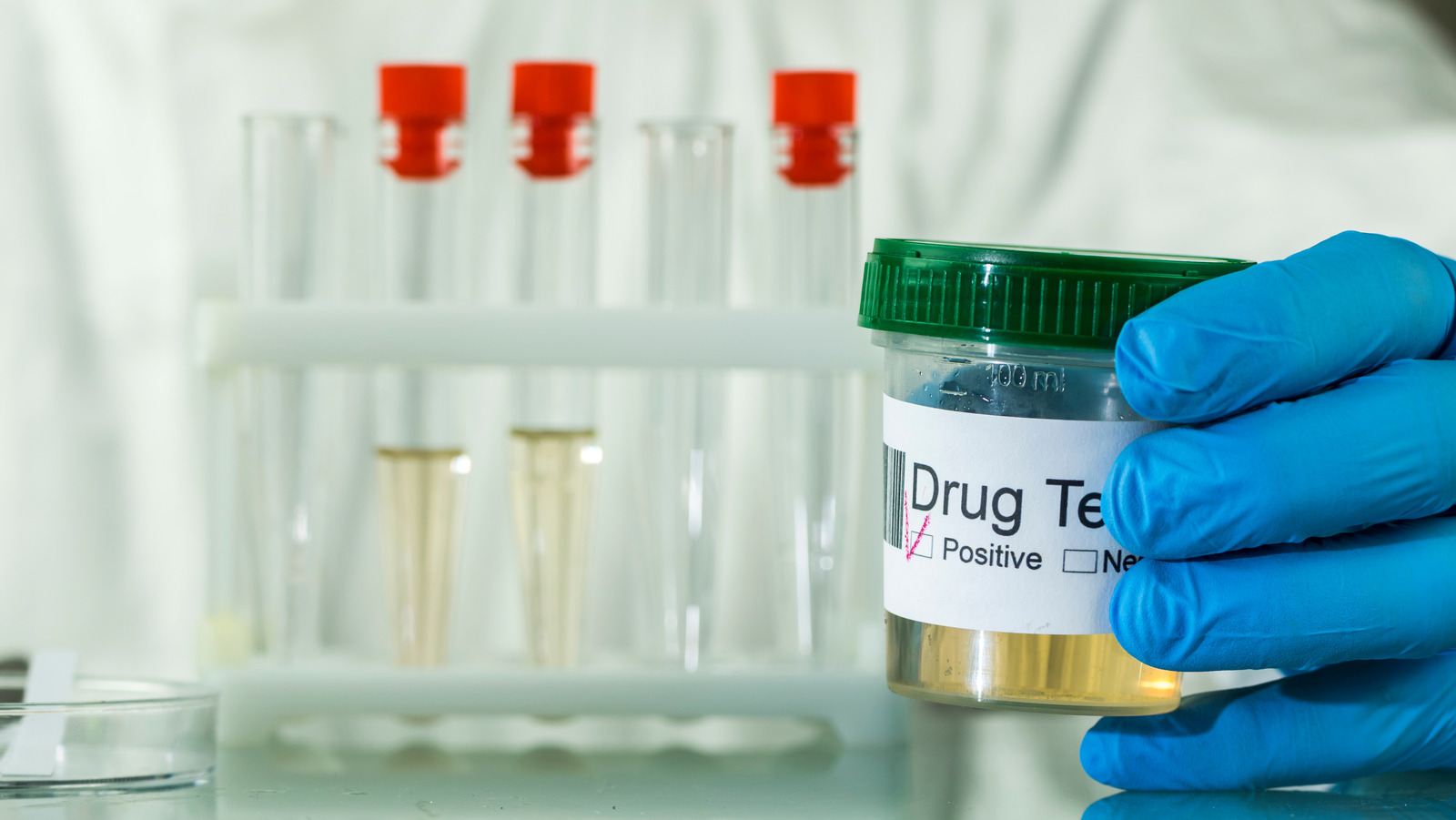Cocaine is a potent stimulant drug that causes an intense but brief high. People who use cocaine tend to use it regularly to achieve that high, quickly leading to dependency.
According to the Substance Abuse and Mental Health Services Administration (SAMHSA) 2021 National Survey on Drug Use and Health (NSDUH), which covers substance use, mental health, and treatment, approximately 4.8 million individuals aged 12 and older admitted to consuming cocaine in the previous year.[1]
Whether you’ve used cocaine yourself or you know someone who abuses cocaine and wants to get help, you may be wondering how long cocaine stays in the system. Generally, it will show up in a urine test between two and four days, but there are many factors that affect its detection in different systems.
How Long Does Cocaine Stay in Your System?
Cocaine has a half-life of roughly one hour, meaning it takes about an hour for the body to eliminate half of the cocaine that’s currently in the bloodstream. However, long-term cocaine use affects how quickly your body eliminates it.
The effects of cocaine are rapid. When you use it, your body quickly breaks it down into metabolites or byproducts. These stay in the system longer than the effects of cocaine, which can be detected by various drug tests.
The drug tests used to detect cocaine include:
Urine Test
There are numerous testing procedures for cocaine, but urine testing is the most commonly used. Cocaine is processed in the liver and bloodstream. The primary metabolite is benzoylecgonine, which can be identified in the body fluids for up to three days.[2]
Benzoylecgonine has a urinary content that’s much higher than cocaine, so that’s the cocaine byproduct that drug screenings test for.[3] The urine may be tested in a lab or using a rapid test, though the latter does not offer the same level of accuracy.
Despite widespread use, urine tests have a significant disadvantage. There are products that claim to flush cocaine out of the system, which can alter drug tests and present a false negative.
Blood Test
Cocaine stays in the blood for about 12 hours. Benzoylecgonine can be detected for up to 48 hours, however.[4]
Blood tests are more invasive than urine tests and take longer to get results, so they’re not as common. Typically, only hospitals or medical facilities use blood tests to screen for drugs.
Saliva Test
Like blood tests, saliva tests can detect cocaine or its metabolites for one or two days after use.[5] This involves taking a saliva sample using a swab, which is then deposited into a tube and sent to a lab.
These tests are easy to administer, more secure, and harder to “cheat” than urine tests.
Hair Test
Hair tests are the most complex of the drug screening options but one of the most reliable. Hair samples have long detection windows for various drugs, including cocaine. Depending on the length of the hair sample, the test can reveal cocaine metabolite several months after use.[6]
Segmental hair analysis – a more complex testing method – can reveal detailed drug exposure month-to-month.
| Body System | Detection Timeframe |
| Blood | Up to 2 days |
| Saliva | Up to 2 days |
| Hair | Months or years |
| Urine | Up to 3 days; up to 2 weeks with heavy use |
Factors That Affect How Long Cocaine Can Be Detected
There are many factors that affect how long cocaine stays in your system, including:
- Cocaine purity
- The dose
- The method of administration (snorting, gumming, smoking, etc.)
- The frequency of use
- When you last used cocaine
- Urine pH
- Concentration of urine
- Kidney or liver impairment
- Body mass (height and weight)
- Body fat content, as metabolites are stored in body fat
- Other drugs or alcohol taken around the same time
- Blood pressure
- Individual metabolism
- Pre-existing medical conditions
Testing Accuracy and False Positives

Drug screening tests aren’t foolproof. They can be cheated, and they can produce false positives.
One reason for false positives is the “cutoff limit.” Drug tests don’t come up positive if they detect any amount of any drug metabolite. To prevent false positives due to environmental contamination, such as inhaling secondhand smoke from marijuana, drug screens use a cutoff limit.
The cutoff limit refers to the minimum amount of a metabolite that’s necessary for a positive result.[7] It’s possible for someone to have cocaine metabolites but still pass the test if they’re below the cutoff limit.
False positives are such a concern that some states have laws indicating that positive test results for certain detection methods aren’t grounds to fire an employee.
One is Massachusetts, which passed a law indicating that hair tests aren’t grounds for termination after a group of police officers tested positive for cocaine.[8] Police officers are often in contact with illicit drugs in the course of their work, so it’s possible for metabolites to show up in their system.
If it seems like this wouldn’t apply to the average person, consider that about 90% of the dollar bills in circulation have detectable amounts of cocaine from being used to snort the drug.[9] People who handle a lot of cash can inadvertently be exposed to cocaine without using it.
How Long Do the Effects of Cocaine Last?
Cocaine produces a rapid and intense high, but it’s fleeting. It usually lasts about 20 or 30 minutes, which encourages people to take more to achieve that high again.
The side effects of cocaine can last much longer, however.
The short-term effects of cocaine use include:
- Agitation and restlessness
- Risk-taking behaviors
- High body temperature
- High blood pressure
- Increased heart rate
- Sweating
- Possible stroke
The long-term effects of cocaine can include:
- Anxiety and panic attacks
- Psychosis
- Insomnia
- Paranoia
- Mood swings
- An urge to stop but being unable to
After taking cocaine, some people may experience a “cocaine crash” the following day. Depending on how much cocaine is in the body, the symptoms of the crash can vary but usually include fatigue, malaise, and psychological symptoms like depression and anxiety.
Managing Cocaine Withdrawal
If you’re concerned about cocaine showing up on a drug test, you may want to stop as soon as possible to give it time to leave your system. But if you use cocaine frequently, you may experience withdrawal symptoms like:[10]
- Restlessness
- Depressive state
- Exhaustion
- General discomfort
- Increased appetite
- Vivid dreams that are unpleasant (or nightmares)
- Reduced motor function
- Intense cocaine cravings
Withdrawal symptoms can appear within several hours after your last cocaine use but may persist for days or weeks. Unlike opiates or alcohol, cocaine withdrawal isn’t likely to be life-threatening. It can be severe and extremely uncomfortable, however, which is why many people seek medical detox to manage their symptoms.
With medical detox, you can stop using cocaine and go through withdrawal with the supervision of medical staff. You will receive medications to manage severe symptoms along with supportive care to stay nourished and hydrated.
Get Help for Cocaine Abuse
If you or someone you know is dealing with cocaine addiction, getting help can feel like an uphill battle. But you have options. The Last Resort provides comprehensive treatment options for cocaine abuse and addiction to help you overcome your struggles and lead a healthier life.


